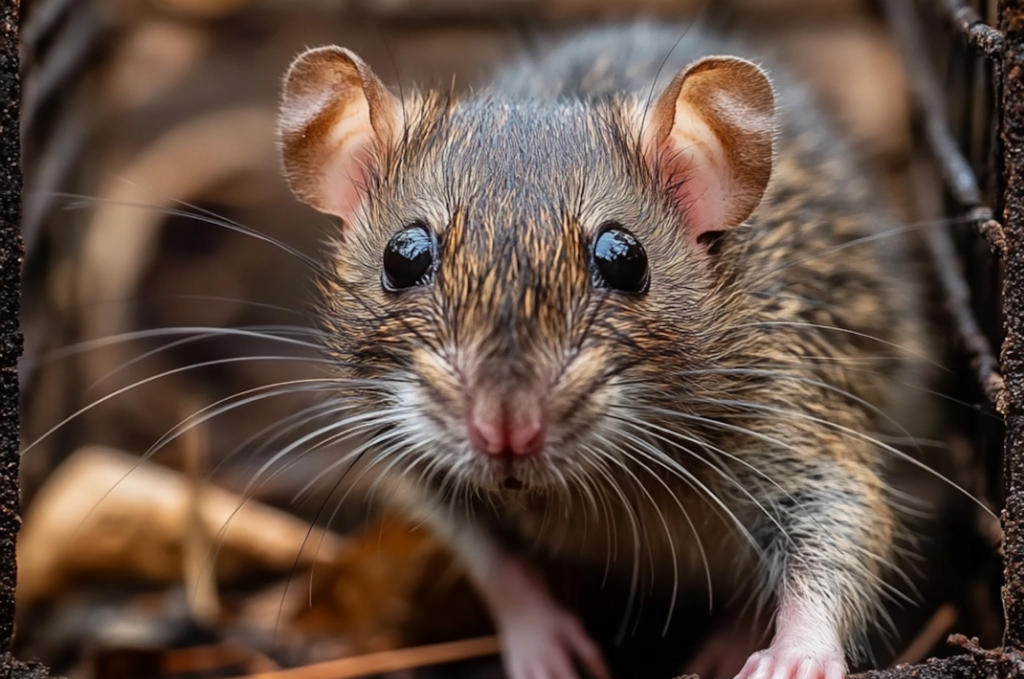Crisp orange leaves that crinkle under our feet and the smell of pumpkin spice usher in the fall here in Maryland–a favorite season for many in the northeast. With the changing seasons also comes the shuffle of new pests that tend to flock to homes, including boxelder bugs, stink bugs, and rodents.
Rodents of all kinds, including mice and rats, begin to take refuge inside the warm basements of homes, especially within urban areas. To prevent and get rid of rodents, it’s important to start early before they multiply.
This fall and early winter, you don’t have to deal with rodents in your Maryland home; here are ten effective tips and methods to get rid of rodents once and for all.
Common Rodents in Maryland
Maryland homeowners may come in contact with several different types of rodents, including:
- House mice
- Norway rats
- Deer mice
- Roof rats
- Beavers
- Squirrels
The first two rodents are the most common that make their way inside homes as they typically dwell indoors and can fit through tiny cracks and crevices.
 Steps to Prevent and Remove Rodents in Maryland
Steps to Prevent and Remove Rodents in Maryland
Rodents of any kind can spread disease, contaminate food, and destroy insulation and electrical wiring. Luckily, there are many ways to treat a rodent infestation and prevent these pests from returning to your home.
1. Identify Common Rodents in Maryland
If you think that there might be rodents present in your home, the first thing you should do is familiarize yourself with the most common rodents in Maryland to determine what you may be dealing with. As previously mentioned, some of the most common types of rodents in Maryland include house mice, Norway rats, beavers, and squirrels.
Depending on what type of rodent you are dealing with, your treatment options will differ. House mice and Norway rats can often be eliminated using traps and baits, though some mice avoid traps. Squirrels and beavers will require an animal control specialist.
2. Seal Entry Points and Gaps
Rodents can easily enter a home with gaps in the exterior–even very tiny cracks you wouldn’t think–so you’ll want to seal these entry points as soon as possible. You can do this by using a store-bought caulk or sealant and filling any holes or cracks in your home that may be allowing pests to get through.
3. Eliminate Food and Water Sources
Rodents will typically enter homes looking for food and water, so removing these resources can deter them from invading your space. Eliminating standing water, cleaning the dishes in your sink, properly sealing and storing food and beverages, and keeping your trash cans sealed are all great ways to prevent rodents in the home.
4. Use Traps Effectively
There are tons of rodent traps available for purchase, ranging from humane traps to more intense methods. If you choose to set up traps yourself, be sure to carefully read the instructions to ensure you’re using them correctly.
5. Consider Baits and Rodenticides
Rodent baits and rodenticides are also popular options for mouse control. Like rodent traps, you should use your best judgment when using baits and rodenticides to ensure you’re using them as intended.
6. Maintain a Clean and Clutter-Free Environment
Rodents like to hide in messy homes and build their nests with random materials they find. So maintaining a clean and clutter-free home is imperative for preventing these pests. This means regularly cleaning and tidying up and removing all excess clutter and junk inside and outside your home.
7. Implement Natural Rodent Repellents
Some rodents are known to dislike certain scents, and you can use these scents in essential oil form to deter them from infesting your home. For example, essential oils like lavender, peppermint, and eucalyptus can be misted and wiped down on surfaces to deter rodents.
8. Utilize Ultrasonic Devices
Some Maryland homeowners prefer to use ultrasonic devices to get rid of rodents. These devices emit a high-frequency sound that is meant to repel rodents. However, these devices are not known to be the most effective at getting rid of pests, so you may want to employ another pest control method as a backup just in case.
9. Hire Professional Pest Control Services
Hiring an experienced pest control professional is always your best bet for getting rid of pests of any kind, especially rodents. Rodents are known to be extremely sneaky and difficult to get rid of, so you’ll want the help of a trusted exterminator to ensure the job is done correctly and the pests in your home do not return.
10. Prevent Future Infestations
Once the rodents in your home have been exterminated, you will want to prevent any future infestations. Pest Czar’s home protection plans feature natural and fast-acting methods that help eliminate rodents and deter them from entering your home. Furthermore, following all of the tips mentioned above will keep your home pest-free and help restore your peace of mind.
FAQs
What are the signs of a rodent infestation in Maryland homes?
Some of the biggest signs of a rodent infestation in Maryland homes include seeing rodent droppings, spotting fresh tracks, gnaw marks on furniture and wiring, a foul odor in the home, and scratching sounds coming from inside the walls.
How can you safely use traps and baits to remove rodents?
If you choose to use traps and baits to catch rodents in your home, be sure to do so safely by carefully reading the instructions before setting them up. When in doubt, it is always in your best interest to contact a professional exterminator to take care of infestations of any kind.

